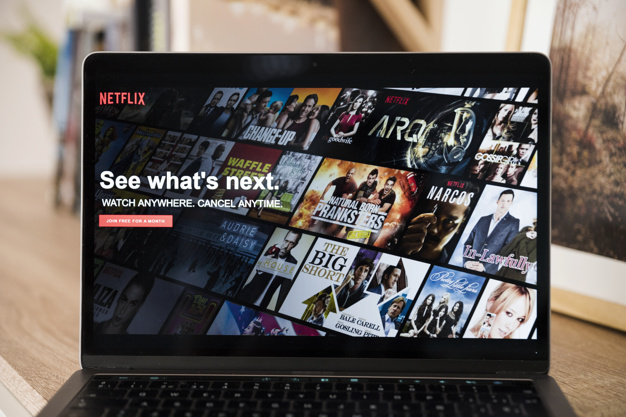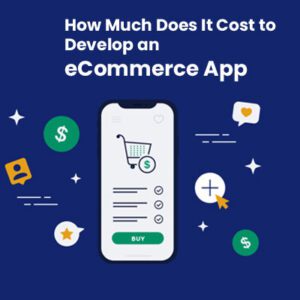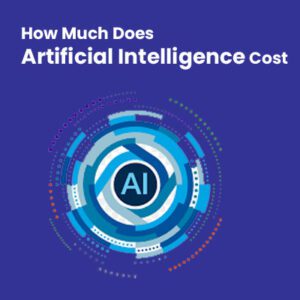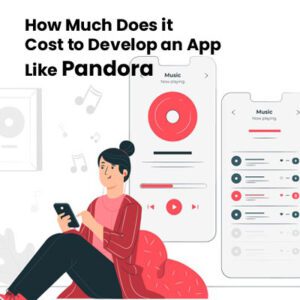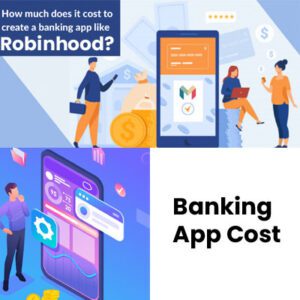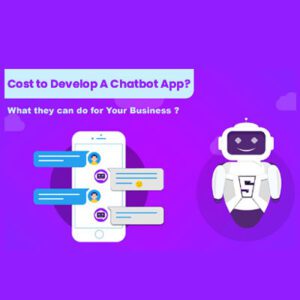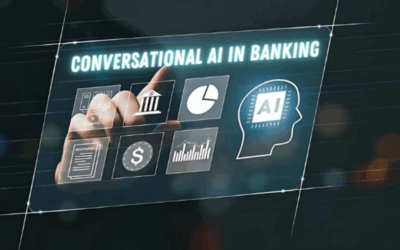Applications of AI in the Media & Entertainment Industry
AI In Media and Entertainment Industry
The media & entertainment industry is experiencing rapid growth worldwide. With the support of high-speed network availability and trending video streaming platforms like YouTube and Netflix, users are accessing unlimited entertainment on the go.
According to the market research reports, the global revenues of the Media and Entertainment industry are 2 trillion U.S. dollars in 2020 and are expected to reach nearly USD 2.6 trillion by 2024. This rapid growth is primarily because of people’s switch from traditional media channels like cable and radio to digital or mobile streaming applications.
This positive trend is creating amplified competition in the media and entertainment industry. Until and unless the companies deliver quality media content with high-resolution pictures, they cannot attract many consumers to drive higher business value.
To be competitive and implement streamlined operations, the use of AI in the media and entertainment industry is increasing all over the world. Artificial Intelligence (AI) technology-based applications are efficiently and strategically transforming the way media industry reach audience and boost their services.
Yes, the implementation of AI in media and entertainment industry would help companies to build digital solutions that help media and entertainment services providers deliver excellent services and enhance their customer experiences.
Many professionals in the fields of filmmaking, digital marketing, advertising, game development, and a variety of entertainment channels are adopting AI. They are unlocking new digital avenues to deliver high-quality and personalized content to grab the attention of their audience over competitive online channels like YouTube.
In this blog, we are going to give a brief on significant AI use cases in media and entertainment industry to help media companies better understand the importance of AI in entertainment industry. Herein, we have also discussed the benefits of using AI in media and entertainment.
Top AI Use Cases In Media and Entertainment Industry
What is the role of AI in entertainment media?
If you have this question in mind, here are a few AI use cases in media and entertainment that are transforming the traditional business ways of entertainment service providers.
How AI is Transforming Media & Entertainment Field?
#1 Enhanced User Experience & Personalization
The application of improved user experience and personalization is the best answer for what is the use of AI in entertainment industry.
AI in the Media & Entertainment is widely adopted for improving user experiences by offering personalized video content recommendations.
Due to intensified competition across the industry, engaging customers for long hours and increasing brand credibility is a challenge for media companies. Artificial intelligence in entertainment industry ensures personalization and increases customer experience. The media and entertainment channels are using artificial intelligence to monitor user search behaviors and offer more personalized services for billions of users who are accessing their services online.
Yes, AI-powered media apps can monitor the search patterns of users and help media companies offer more personalized content recommendations to users. For instance, recommending quality content tailored to the user preferences when they shop online or browse a video will help digital media channels attract as many consumers as they can and improve brand performance.
Netflix is one of the best AI apps in entertainment examples. This popular entertainment platform is using AI to provide the utmost personalized experience to its subscribers. The AI-enabled features in the Netflix (a top on-demand video streaming app for Android and iOS) are contributing to tracking user preferences and offering more personalized video content recommendations to users.
This upgraded AI service from Netflix has increased its paid subscriber base to approximately 193 million worldwide as of June 2020. Of which, contributing nearly 40% of subscriber volume, the United States has remained the revenue-contributing region to Netflix.
To further upgrade the services, Netflix has partnered with the Nantes University in France and the University of Southern California in the USA to create a new machine learning method called Dynamic Optimizer that intends to provide a smooth and high-quality streaming experience for its users, especially in India and Japan.
Now, let’s have a look at some of the advantages and use cases of digital technologies like AI, data science, deep learning, and machine learning adopted by Netflix.
Recommend To Read: How Much Does It Cost To Develop An App Like Netflix?
Let’s watch more about the benefits of using AI in media and entertainment apps like Netflix.
Get in Touch!
Top AI in Entertainment use cases in NetFlix App:
Here are the best use cases of AI, Machine Learning, & Data Science at Netflix:
a) Personalization of Movie Recommendations
AI in entertainment industry has a great impact on content creation to consumer experience. Netflix has realized the benefits of using AI in media production. Users who see ‘A’ are more likely to see the continuation i.e. ‘B’. It’s a popular feature of the Netflix platform. Netflix uses the previous history of other interests that match specific user preferences and recommends relevant content to maintain a long-lasting connection with subscribers.
b) Auto-Generation of Thumbnails
It is one of the top advantages of using AI in video streaming services. Showing video frames as an initial point for thumbnail generation or using hundreds of frames from an existing film, Netflix illustrates these photos and then tries to determine which thumbnails are the most recognizable in your click.
c) Film Editing (Post-Production)
The future of AI in media and entertainment is anticipated to create wide opportunities for filmmakers in many ways. Film editing is one of the AI Trends in Media & Entertainment industry.
Editing and synchronizing movie subtitles to background sounds and front-end images manually is a time time-consuming and tedious process. However, the adoption of AI in the media & entertainment is most beneficial in terms of process automation and avoiding manual checks.
d) Uninterrupted Streaming Quality
#AI video enhancement software apps can help media and entertainment channels like Netflix improve video quality and let devices consume less mobile data while streaming the content. Netflix has upgraded its code by embedding ML algorithms to improve streaming quality.
Currently, nearly 117 million subscribers are streaming Netflix videos. If this is the case, how much traffic should Netflix handle in a second? To deliver quality streaming services in seconds to its subscribers throughout the world, the company has used ML algorithms to predict Network quality, video quality, and all other technical challenges that happen during video streaming.
#2 Media and Advertising
Smart advertising is one of the top benefits of using AI in media and entertainment apps. It is another best advantage of using AI in media and entertainment. Artificial Intelligence in entertainment field is used for marketing aspects that include advertising, design, and content promotion.
Smart AI algorithms are best suitable to create results-driven advertising and marketing solutions. AI-driven marketing software apps help companies in addressing the requirements and preferences of their audience, create promotional strategies, and offer customer-centric digital content to drive higher value.
For instance, AI in media industry can create thousands of catchy visual designs for advertising purposes in just a second. Thanks to such advanced and revolutionizing technology that drastically cuts manual efforts and improves productivity.
#3 Extensive Usages of VR and AR Technologies
It is one of the top trends of AI in media and entertainment industry. Besides AI technology, Augmented Reality (AR) and Virtual reality (VR) technologies are projected to be the top AI trends in media & entertainment space.
However, the use of AI can help to create AR/VR interactive content. Using AI techniques, the entertainment industry can do wonders and create breathtaking scenes with a pair of goggles by using AI techniques.
Of course, AI and virtual reality content development for food shows, reality shows, and live events/programs draw consumer attention. With all these advanced technologies, watching shows and movies with real impact will not be a dream, it undoubtedly happen in the future. 3D Avatar movie is the best AI in entertainment examples that offers virtual experiences to the viewers in real-time.
#4 AI in Media Offers Search Optimization
It is one of the best AI applications in entertainment and media field. As there is a vast amount of information available online, sometimes it’s tough to find what we need. Artificial Intelligence in media has come to help make search results more similar and accurate.
Unlike traditional search methods through typing, integration of virtual chat assistants, or voice-enabled features, AI media apps help users to give voice commands and make their search easier.
On the other hand, the image recognition capabilities of AI and its technologies will also allow users to upload an image and ensure a smooth search facility for their users. Hence, AI in media and entertainment app development will help companies provide the most convenient services to their audience and improve brand value.
Here are a few more top AI in entertainment use cases that let you analyze the future of AI in media and entertainment industry.
Top AI In Entertainment Use Cases
1) Content Personalization
It is one of the best AI Applications in Entertainment and Media Industry. Content personalization is the best use case of AI in media and entertainment sector. Popular video and music streaming platforms such as Netflix and Spotify have been successful since they offer location-specific content that meets the preferences of all genres.
On-demand video streaming applications use machine learning and AI algorithms to analyze user demographics and behavior and recommend content that they love to stream or watch. As a result, these AI-based platforms provide users with content that satisfies their specific interests, thus providing them with a highly personalized experience.
2)Meta Data Tagging
As a huge amount of creative and engaging content is being created every minute, making this content visible to viewers can be a daunting task for media and entertainment companies. The manual process requires watching videos and identifying locations, scenes, and objects in the video to classify and add tags.
To carry out this work on a large scale, distributors and media creators like CBS interactive are using AI-based video intelligence tools to keenly analyze the content by identifying and framing objects to include suitable tags.
3) Reporting Automation
Automating report generation is one of the top applications of AI in media. AI not only automates minute-by-minute or day-to-day operations but also helps media organizations make strategic business decisions from the customer and market data.
Natural Language Processing (NLP) based media apps are the best examples of automatic report generation applications. These type of innovative and intelligent apps helps media companies automate data analysis and generate channel performance reports from raw information shared by the Broadcast Audience Research Council of India (BARC).
The weekly data normally received from the BARC is usually in the form of large Excel sheets. Analyzing these sheets once a week proves that it is very difficult for the analysis team to generate and implement meaningful exercises. Hence, AI and ML-powered applications will address the best solution for this complex procedure. AI-enabled software solutions automate the data analysis process and improve the productivity.
4) Subtitle Generation
It is one of the best AI in entertainment examples that we must discuss here. International media publishing firms should make their content useful for audiences from various regions. So, they need to provide accurate and eye-catching multilingual subtitles for their video content platforms. Writing subtitles manually for multiple movies and TV shows in dozens of languages may take thousands of hours and effort. In addition, it is difficult to hire the right candidate to translate content into dozens of languages without errors.
To overcome these challenges, the media and entertainment sector is using AI-based technologies like natural language production and natural language processing.
For example, YouTube’s Artificial Intelligence enables its publishers to automatically create catchy captions for videos uploaded on the platform, giving them easy access to their content. It will enhance the content readability, attract users, and improve the traffic.
These are a few benefits of using AI in the media and entertainment industry. As discussed here, AI turns entertainment and media apps more convenient and accessible. AI-powered media applications helps companies streamline regular operations, improves accuracy, and encourage automation across the processes.
Wrapping Up
The role of AI in media is incredible. The applications of AI in media and entertainment are expected to occupy the most of the industry space in the coming days.
Yes, the future of AI in media and entertainment will be expected to create more business value for service providers. AI technology is a beneficial and futuristic way for media companies to stay competitive in 2022 and the years ahead. As discussed in this article, the implementation of AI in entertainment app development or media app development will reshape the landscape of the field.
Do you have any AI app development ideas and looking to hire the best AI App development company?
USM Business Systems is a Top Mobile App Development Company in USA, UAE, Kuwait, and India. Driven by vast experience in the design and development of AI mobile apps, we have been recognized as the best AI app development company. Our top mobile app developers use the full potential of AI, ML, and NLP like advanced technologies and create budget-friendly mobile apps.
Please fill in our form. We will get back to you as soon as possible to know your requirements.
